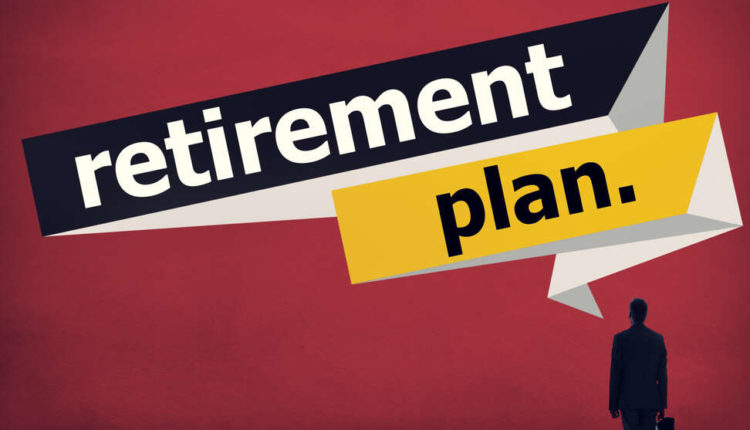Planning your retirement from the federal government isn’t rocket science. Both the Civil Service Retirement System (CSRS), and especially the Federal Employees Retirement System (FERS), offer lots of good benefits. But also the chance to make a mistake or two, that will reduce your income, or some other options, in retirement. Given the advances in health care, it is not unusual for someone who has worked 20 or 30 years in government to be retired for the same amount of time. That’s potentially 30 years on a potentially reduced income. And then there is inflation. So a little planning now can make your life a lot more pleasant down the road. Also for your spouse!
People under the CSRS program will get larger annuities and full cost of living adjustments (COLAs) to keep pace with inflation. But the majority who will retire this year and in the future are under FERS. They will have to live with smaller monthly annuities, diet COLAs, and depend on their Social Security and TSP investments for their retirement income. Long range planning isn’t just important, it is absolutely essential. Federal benefits expert Tammy Flanagan thinks this upcoming December/January may produce the tidal wave of retirements experts have incorrectly predicted for decades. Maybe this time it will actually happen. But whether you are going out this year, next summer or departure day is years away, plan ahead. Starting yesterday. But beginning now is better than nothing. A lot better.
For starters, Tammy will be my guest today on our Your Turn (10 am ET). You can listen here or on the radio at 1500 AM in the D.C. area. She is going to cover the waterfront and focus on the 7 things you should NOT do when mapping out your retirement. Below is her list. It’s a long one, but trust me your retirement will seem a lot longer and leaner if you skip it. Here goes:
- Expecting OPM and HR to plan your retirement/Know when and who to ask for help when planning your retirement!
- OPM doesn’t give advice, but they administer your retirement and insurance after your retirement is effective (not while you are an employee)
- HR offices don’t (shouldn’t) provide advice, but their job is to provide you with education and information about your federal retirement benefits so that you can make informed elections. Some HR offices are staffed with experienced, knowledgeable, and helpful personnel and some are not.
- The TSP website and the Thriftline are designed to provide education and information about the TSP however, they are also not in the business of providing financial planning or tax advice.
- The Social Security Administration provides assistance with claiming benefits and understanding your entitlement to the various benefits for workers and eligible family members. They also are not in the business of providing financial planning advice.
- You may need help from other professionals when you are ready to make important and sometimes irrevocable retirement decisions:
- Federal benefits subject matter expert, if not available at your agency
- Financial Advisor
- Tax Advisor
- Estate Planning Attorney
- Disregarding tax consequences and not taking advantage of tax strategies.
- Could You Be Paying Too Much in Taxes in Retirement?
- Tax Planning for and during retirement is the second most overlooked area in developing a financial plan for Federal Employees.
- Many federal employees assume that their taxes are going to be lower in retirement.
- Most Feds put the majority of their retirement savings in tax-deferred accounts, like the TSP or Individual Retirement Arrangements (IRA).
- Learn how much of your retirement income will be subject to federal (and state, if applicable) income taxes.
- The IRS has a calculator to help you estimate your federal income tax and information for retirees.
- Ignoring the differences between your “Leave” Service Computation Date and your “Retirement” Service Computation Date.
- Service that counts for leave accrual is not always credited for retirement eligibility and computation.
- Military service is credited generally only if deposit is paid.
- Changes in work schedule can impact retirement eligibility and computation.
- Your retirement service computation date is often not computed until you file your retirement application; learn how to have this done earlier.
- Employees who were hired between 1984 and 1987 as well as those who returned to federal service after 1983 after a break in federal service are among those who may have an error in their retirement coverage.
- Learn what you can do to be sure your service is creditable and adequately documented.
- Misjudging the timing and processing of your retirement claim
- Allow enough time for your HR and Payroll office to do their part of your retirement processing.
- The transition from employee to annuitant involves a paper-based processing system that can take months for adjudication.
- Botching the CSRS or FERS retirement application by using white out, cross outs, or not answering all of the questions.
- Learning the best order to turn on your retirement benefits. FERS is a 3-tiered retirement system: government pension, Social Security and Thrift Savings Plan. You don’t have to turn on all three benefits at the same time.
- Ignoring the need to have a long-term care plan
- What is the best time to plan for the future needs of long term care?
- Does everyone need long term care insurance?
- What does it mean to be self insured?
- Neglecting to Plan for the inevitable
- Erring when planning for a current spouse’s financial security.
- Underestimating the value of the spousal survivor benefit election, if married.
- Failing to understand the court order requirements for a former spouse.
- Forget to keep beneficiary designations updated.
- Overlook the standard order of precedence as an option instead of designating named beneficiaries.
- Having too much or not enough life insurance.
- Canceling basic life insurance is not a great idea.
- You may be paying too much for life insurance.
- Failing to take advantage of annual open seasons to change health plans to meet your changing needs
- You may be in the wrong health plan if you are over age 65.
- Retirement can last a long time, learn how Medicare works with your FEHB plan.
- What health plans work for families with different needs for health care.
- A high deductible health plan can save you money if you understand how to make the most of a health savings account.
That’s a long list to be sure. But checking it off will make your retirement much, much more pleasant!
Nearly Useless Factoid
By Alazar Moges
What we now know as a Slurpee was invented by Kansas Dairy Queen owner Omar Knedlik in the 50s when he sold bottles of soda that had been sitting in a freezer after his fountain broke down. They became a hit with customers that liked the consistency. He began to modify old ice-cream makers to make the slush, with one prototype even using a car’s air conditioning unit.
Source: The Atlantic


Comments are closed.